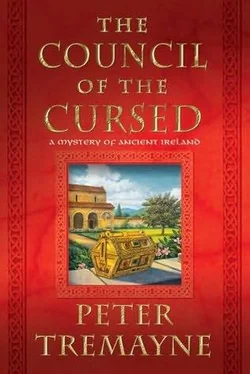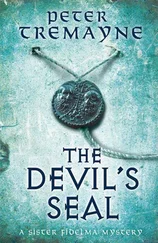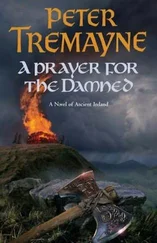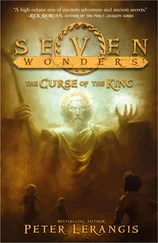Peter Tremayne - The Council of the Cursed
Здесь есть возможность читать онлайн «Peter Tremayne - The Council of the Cursed» весь текст электронной книги совершенно бесплатно (целиком полную версию без сокращений). В некоторых случаях можно слушать аудио, скачать через торрент в формате fb2 и присутствует краткое содержание. Жанр: Исторический детектив, на английском языке. Описание произведения, (предисловие) а так же отзывы посетителей доступны на портале библиотеки ЛибКат.
- Название:The Council of the Cursed
- Автор:
- Жанр:
- Год:неизвестен
- ISBN:нет данных
- Рейтинг книги:4 / 5. Голосов: 1
-
Избранное:Добавить в избранное
- Отзывы:
-
Ваша оценка:
- 80
- 1
- 2
- 3
- 4
- 5
The Council of the Cursed: краткое содержание, описание и аннотация
Предлагаем к чтению аннотацию, описание, краткое содержание или предисловие (зависит от того, что написал сам автор книги «The Council of the Cursed»). Если вы не нашли необходимую информацию о книге — напишите в комментариях, мы постараемся отыскать её.
The Council of the Cursed — читать онлайн бесплатно полную книгу (весь текст) целиком
Ниже представлен текст книги, разбитый по страницам. Система сохранения места последней прочитанной страницы, позволяет с удобством читать онлайн бесплатно книгу «The Council of the Cursed», без необходимости каждый раз заново искать на чём Вы остановились. Поставьте закладку, и сможете в любой момент перейти на страницу, на которой закончили чтение.
Интервал:
Закладка:
Peter Tremayne
The Council of the Cursed
AD670:…et ad sacrosanctum concilium Autunium, Luna in sanguinem uersa est.
Chronicon Regum Francorum et GothorumAD670:…and at the sacred Council of Autun, the Moon became the colour of blood.
Chronicle of the Kings of the Franks and GothsChapter One
The two cowled figures were barely discernible in the dark shadows of the mausoleum. They stood silently by the large sarcophagus that occupied the centre of this small section of the musty catacombs, which seemed to stretch in every direction under the abbey. This was the ancient necropolis; old even before the abbey had been built. Since the site was sanctified, after the coming of the New Faith, it was where generations of abbots had been laid to rest.
There was silence here apart from the distant dripping of water. The atmosphere was dank and almost suffocating. A faint light permeated the underground caverns, giving a certain relief to the darkness, by which objects could be distinguished by their various differences in light and shade but without detail. The two figures stood without movement, almost as if they themselves were part of the stonework.
Then, in contrast to the faint dripping of water, there was a sudden soft shuffling noise, as leather came into contact with stone. One of the figures stiffened perceptibly as a glimmering light appeared across the cavern and caused shadows to dance this way and that in the gloom. A third figure, holding a candle, emerged between the tombs.
The figure also wore a hooded robe. It halted before the mausoleum.
‘I come in the name of the Blessed Benignus,’ its rasping voice intoned.
The waiting couple in the darkness visibly relaxed.
‘You are welcome in the name of Benignus of sanctified name and thought,’ said one, in a soft, female voice. The words were exchanged in Latin.
The newcomer hurried forward into the mausoleum and placed the candle on the side of the marble tomb.
‘Well?’ asked the second of the waiting figures. ‘Does he still have it?’
The newcomer nodded quickly. ‘He has placed it in his chamber.’
‘Then we might easily take it. It will be a sign that God has blessed our endeavour,’ replied the other.
‘But we must act swiftly. The envoy from Rome has already spoken with him about it. If we are to use it as our symbol when the time comes, we must remove it now.’
‘If this is to work in our favour and the people to be aroused, he must be prevented from spreading the truth of this great symbol. The people must believe in it without question.’
‘Are we prepared for what we must do?’ It was the woman’s voice again.
‘It is for the greater good,’ intoned her companion.
‘ Deus vult !’ the newcomer added solemnly. God wills it.
‘It is agreed, then?’ asked the woman with a catch of breath, as if caught by a cold air.
‘The deed must be done tonight,’ the newcomer said firmly.
The three looked at one another in the crepuscular light, and then with one voice they murmured: ‘ Virtutis fortuna comes !’ Good luck is the companion of courage.
Without another word, the three shadowy figures departed in different directions through the dark vaults of the catacombs.
‘I will no longer tolerate the arrogance of that man!’
There was an astonished silence in the chapel as the voice echoed in the stone vaulted building. The abbots and bishops, who sat in the dark oak carved seats arranged before the high altar, turned almost as one to regard their grim-faced colleague. He was still seated but pointed an accusing finger towards the religieux seated further along the row.
‘Calm yourself, Abbot Cadfan,’ admonished Bishop Leodegar, who was presiding over the meeting. The chapel had been so arranged to serve the function of a council chamber. ‘We are here to debate the future of our Churches, which are currently separated by language and rituals. Remember that blunt words may be spoken in seeking paths along which we might converge so that unity may be achieved. Such words should not be taken as personal insults.’
He spoke firmly in the Latin language that was common to them all.
Abbot Cadfan’s scowl merely deepened.
‘Forgive my bluntness, Leodegar of Autun,’ he said, ‘but I have the ability to recognise an insult from an opinion expressed in genuine debate. I will tolerate no insults from the enemies of my blood and my people.’
The elderly, grey-haired cleric seated at Abbot Cadfan’s right side laid a gentle hand on his companion’s arm. He was Abbot Dabhóc of Tulach Óc, who represented Bishop Ségéne of Ard Macha; the latter claimed episcopal primacy over all the five kingdoms of Éireann.
‘I am sure Bishop Ordgar did not mean to sound arrogant,’ he said diplomatically. ‘While we speak in Latin, it is not the language of our mothers and thus we often lack the dexterity of expression with which we are comfortable. It may simply have been a matter of clumsy usage, or possibly different interpretation of emphasis?’
Bishop Ordgar, the subject of the initial angry outburst, had remained staring at Abbot Cadfan with sullen features. A sharp-featured, dark-haired individual with an unfortunate cast of the mouth that seemed to present a permanent sneer, he now turned his belligerent gaze on Abbot Dabhóc.
‘Are you accusing me of not knowing good Latin?’ he growled. ‘What would you, a barbaric outlander, know of the refinements of the tongue?’
Abbot Dabhóc flushed. Before he had a chance to respond, Abbot Cadfan gave a short bark of laughter.
‘Arrogance again-and from one whose people have not yet emerged from pagan savagery. Did we Britons not warn our neighbours of Hibernia that they should not attempt to convert these Saxons from their pagan ways, to teach them the ways of Christ and of literacy and learning? They are not yet sufficiently civilised to know what to do with it.’
Abbot Cadfan used the Latin name of Hibernia to refer to the five kingdoms of Éireann.
Bishop Ordgar thumped his fist on the armrest of his wooden seat. ‘I am an Angle, you Welisc barbarian!’
Abbot Cadfan shrugged indifferently. ‘Angle or Saxon, it is both the same, the same rasping language and the same ignorance. At least I call you by a proper name, but you, in your arrogance, call me Welisc . I am told this means “foreigner”. Yet it is you who are foreigners in the land of Britain. I am a Briton, whose people were in that land at the beginning of time, while your barbaric hordes came but two centuries ago. You entered our land by stealth and guile, and then by invasions, bringing slaughter and death to my people. You seek no more than the wholesale eradication of the Britons. I tell you this, barbarian, you will not succeed. We Welisc -as you sneeringly call us-will survive and may one day drive you from the land you are now calling Angle-land that was once our peaceful land of Britain.’
Brows drawn together, Bishop Ordgar had sprung to his feet, knocking his seat over backwards, one hand apparently searching for a non-existent sword at his side.
Abbot Cadfan sat back and gave another bark of laughter and glanced round at the serious-faced prelates at the table.
‘You see how the barbarian reacts? He would resort to primitive violence, if he had a weapon. He is not fit to call himself a man of peace, a representative of the Christ, and sit in discussion with those of civilised degree. He is just as savage as the rest of the petty chieftains of his people who, when they do not make war on us Britons, are at war with each other.’
A sudden noise interrupted the scene. A tall, swarthy-skinned man, seated beside Bishop Leodegar and wearing rich robes and a silver cross on a chain around his neck-which denoted he was of high rank among them-had risen to his feet and rapped loudly on the floor with a staff of office.
Читать дальшеИнтервал:
Закладка:
Похожие книги на «The Council of the Cursed»
Представляем Вашему вниманию похожие книги на «The Council of the Cursed» списком для выбора. Мы отобрали схожую по названию и смыслу литературу в надежде предоставить читателям больше вариантов отыскать новые, интересные, ещё непрочитанные произведения.
Обсуждение, отзывы о книге «The Council of the Cursed» и просто собственные мнения читателей. Оставьте ваши комментарии, напишите, что Вы думаете о произведении, его смысле или главных героях. Укажите что конкретно понравилось, а что нет, и почему Вы так считаете.











